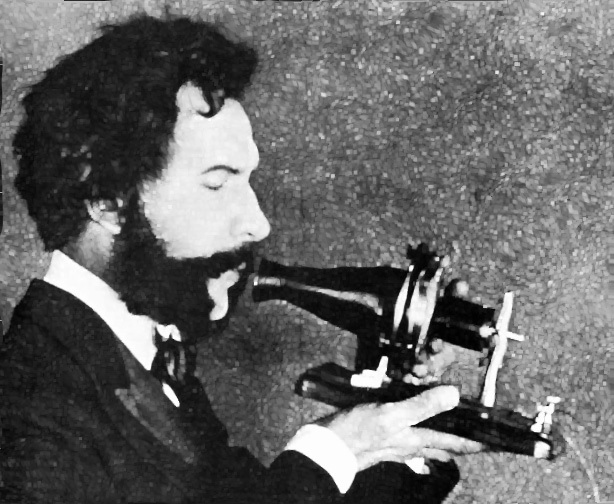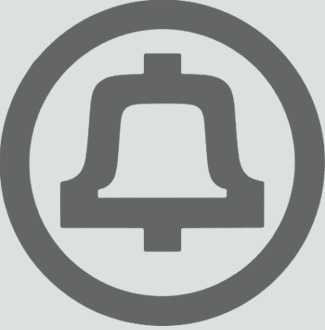Telecom Informer
by The Prophet
Hello, and greetings from the Central Office!
It's spring again in the Pacific Northwest and with it, allergy season. This seems to come earlier than ever, last longer than ever, and absolutely everything gets coated in pollen. I'm miserable and considering building a sneeze guard for my terminal because I have cleaned the CRT at least three times so far today!
On pretty much the entire West Coast, there's a housing crisis and we aren't immune from its effects. The homeless population has dramatically increased, and with it (and the improved weather), the number of people who show up at the Central Office picking up our intercom handset and trying to make a call has also grown. I have the same conversation often. It usually goes something like "I'm trying to make a call," and when I explain that this isn't an available service, the conversation ends with "What do you mean I'm at the phone company's office and I can't make phone calls here?" You have to admit, they do have a good point.
Fortunately, I can now direct folks to a nearby public phone operated by Futel. I'm not entirely sure what to call it - an independent public phone operator? An art project? Social commentary? All of the above? Whatever it is, they operate 14 of the strangest and most interesting public phones that you'll ever use. Starting in 2014, Futel began putting up phones in places where they believed that people might use them. It turns out that people did, and in the intervening nine years, the service has continually grown. Today, there are 11 phones in Portland; one in Long Beach, Washington (home of "Jake The Alligator Man" as featured in the Weekly World News); one in Detroit, Michigan; and one in Ypsilanti, Michigan.
Futel public phones are recycled Western Electric or Automatic Electric payphones, connected to a SIP ATA (usually made by Grandstream, which Futel has found to be the most reliable). The SIP ATA routes to an IVR, and calling works similarly to a prepaid calling card system. Two phones, which are deployed in a tiny house village and a social services office respectively, allow calling without going through the IVR.
When you pick up a Futel phone, you get a menu. Most people just make phone calls, which are free and limited to 30 minutes. Calls within the U.S. and Canada are allowed, with some filtering on premium rate numbers (via both Asterisk and the VoIP provider). International calling is also enabled for some common and popular destinations such as Mexico. However, many other services are offered in addition to calling. Users can create a voice mailbox, check their voicemail, call the operator, and connect with utilities, social services, etc. Beyond practical services, you can also reach "The Dark Fiber," which is a bunch of strange error messages and tones. Other menu options call random payphones that accept incoming calls, "The Druids of Sisyphus Gardens" (homesteaders living in an extremely remote area with landline phone service but no electricity or running water), and - in a form of social commentary, ICE detention facilities.
Unlike me, Futel doesn't perform "service monitoring" at all. They don't know what people say, and they don't even review call logs! The only way that they know that there's a problem is if neighbors complain, or if their VoIP provider complains. Despite this, Futel has never had any legal complaints and has never been kicked off of a VoIP service. There has been no fraudulent 911 usage, and nobody has even made prank calls to sensitive locations that would definitely create blowback. It seems like most people using Futel phones are just making normal phone calls, albeit sometimes attempting to do so while inebriated at three in the morning. Futel effectively thwarts Drunky McDrunkface by adding a fairly clever restriction: you need to have a voicemail account to make a call during "drunk call" hours. People who are too wasted to figure this out and remember a four-digit password for five minutes can't make calls! Of course, 911 is always unblocked. Incidentally, voicemail accounts can only be created from a Futel phone, but can be used from any phone.
Operator service is also offered. People call the operator mostly for directory assistance. They want a phone number to a social service program. Some people call just because they're curious whether there's really an operator. Sometimes people want to be generally weird with an operator, or they're drunk and bored, or whatever. Sometimes they're calling an operator for mental health counseling. Operators have the capability to connect people to phone numbers as well. Although operated by volunteers, Futel actually runs the service semi-professionally: there is an operator handbook and operators are trained according to this. Although being a Futel operator can be fun for volunteers, people calling operators are often in a really rough spot and aren't always super polite. They also aren't always sober. Operators can hang up on abusive callers, but retaliatory countermeasures (such as loud noises) are being considered.
It turns out that these days, running a volunteer operation like this is astonishingly inexpensive. Futel manages to operate all these phones for only about $5,000 per year! While there have been some efforts by Futel to write grant proposals - and limited success in this regard - it has been a tough sell given that the project is both functional (an essential service used by people living on the margins) but is also an art project. Collaborations with artists and hackers have gotten more traction. Open Signal, a Portland arts organization, recently partnered with Futel to implement programs that their artists developed. Futel also brings their services to ToorCamp, operating on the Shadytel network.
In the era of mobile phones and Internet everywhere, it's surprising how many people still use landline phones, and the continued demand for public phones is also surprising. While usage is much less than it previously was, the nature of today's usage may be more essential than it ever was (I called a tow truck for a soccer mom whose car broke down in the Central Office parking lot the other day on the way to pick up her kids, and who had forgotten her mobile phone at home). Cell phone batteries die, mobile phones get stolen or break, and cellular signals don't always reach everywhere. And on the margins of society, not everyone has their life together enough to manage even a prepaid mobile phone subscription.
And with that, it's time for me to find some allergy medicine. I have been sneezing nonstop, and this has to stop! Enjoy my least favorite season, wherever you are, and I hope you aren't allergic to anything because it seems that I'm allergic to everything. I'll write again this summer, possibly from central Asia.
References
- www.futel.net - Futel
- www.opensignalpdx.org - PDX Open Signal
- www.toorcamp.org - ToorCamp
- www.shady.tel - Shadytel

